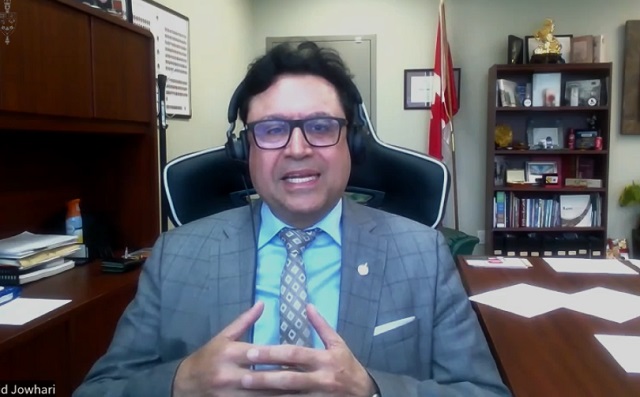Uncategorized
Albertans no longer required to report collisions when damages under $5,000.00

Saving drivers and law enforcement time
Alberta’s government is cutting red tape and saving Albertans time by increasing the property damage collision reporting threshold to $5,000 from $2,000.
To better reflect current vehicle repair costs, effective Jan. 1, drivers will not have to report property damage from a collision to law enforcement unless the cost of the damage is more than $5,000. The new $5,000 threshold was a carefully chosen figure to reduce reporting minor collisions while also making it difficult for fraudulent resales of damaged vehicles.
This change will also free up law enforcement, who are required to commit a significant number of policing resources for processing collision reports. With this change, police officers and administrative staff can spend more time improving public safety.
“Traffic accidents happen. Alberta is saving drivers time and money by not having them report simple fender-benders to the police. Thousands of traffic accident reports clog up our justice system and strains police resources. This is a common-sense change that will benefit drivers and police.”
“We continue to cut red tape by increasing the collision reporting threshold. Waiting in line to file a report is stressful, time-consuming and takes you away from your work and family. This change will alleviate that stress and get you back on the road faster.”
Collisions resulting in injuries and fatalities will continue to be reported regardless of the estimated cost of property damage repairs. Future increases to the collision reporting threshold will be adjusted for inflation based on annual calculations using the Statistics Canada consumer price index, further reducing red tape and time spent by Albertans reporting low dollar value collisions.
“AACP is supportive of increasing the threshold for the reporting of property damage collisions to police. These increases better reflect modern vehicle repair and replacement costs and will result in less minor, non-injury collisions having to be reported to police.”
“This increase to the damage reporting threshold aligns with a resolution Alberta Municipalities members passed at our 2023 convention. We are pleased to see the provincial government take action on this issue.”
The carrier collision reporting threshold will be increased to match the collision reporting threshold of $5,000. Commercial carriers will save time by no longer having to go through an administrative process to eliminate low dollar value property damage collisions from their carrier profile.
“This is excellent news for the transportation mobility industry. We welcome the Alberta government’s move to increase the collision reporting threshold, as it will cut red tape and save time for transportation mobility providers and Alberta consumers.”
Alberta last increased its property damage collision reporting threshold to $2,000 from $1,000 on Jan. 1, 2011, and implemented the commercial carrier reporting threshold ($1,000) in 2009.
Quick facts
- In 2021, there were 89,976 property damage-only collisions reported by law enforcement.
- On average, about 90 per cent of all collisions only involve property damage.
- Data from the Insurance Bureau of Canada shows that in 2022, the average property damage collision claim in Alberta was $6,756.
Uncategorized
RCMP recruitment failure has Alberta advocacy group calling for Provincial Police Service

News release from Free Alberta Strategy (A Strong And Sovereign Alberta Within Canada)
“Make no mistake, we are paying for these services that we aren’t receiving. Alberta’s taxpayers are paying tens of millions of dollars for nearly 400 vacant RCMP officer positions – for boots that are not on the ground.”
A recent report from the Royal Canadian Mounted Police (RCMP)’s independent Management Advisory Board had findings that are nothing short of alarming:
“Federal policing has now arrived at a critical juncture of its sustainability, which present risks for the national security and safety of Canada, its people, and its interests,” says the report.
After over a year of diligent study, the Board has been tirelessly firing off flares, signalling to all who will listen: the very foundation of our national public safety apparatus may be at risk of faltering.
This is doubly problematic because, as you well know, the RCMP is also responsible for boots-on-the-ground policing in large parts of the country, including many rural and remote areas – including in Alberta.
Rural crime has been a longstanding issue in Alberta, and social disorder continues to make headlines nightly.
Alberta Minister of Public Safety, Mike Ellis, took to social media platform X (formerly known as Twitter) to express his opinion:
“The independent report finds the RCMP has struggled in recent years to recruit and retain regular members, a problem that’s particularly acute in federal policing. This is not about the hard-working men and women on the frontline: they are doing everything they can. The reality is the RCMP do not have enough officers to police communities in Canada effectively.”
Ellis has been ahead of this story for months now.
In March, Ellis stated that:
“… on average, Alberta has an RCMP officer vacancy rate of 20 per cent. This means that Alberta is only being served by 1,522 of the 1,911 RCMP officers that the federal government has authorized for Alberta.”
“Make no mistake, we are paying for these services that we aren’t receiving. Alberta’s taxpayers are paying tens of millions of dollars for nearly 400 vacant RCMP officer positions – for boots that are not on the ground.”
The consequences of this capacity crisis are far-reaching.
Not only does it jeopardize the safety of Albertans, but it also undermines the credibility of Canada’s federal police force on the international stage.
With limited resources and personnel, the RCMP’s ability to address pressing national and global security concerns is severely compromised.
The Management Advisory Board, created in 2019 by the federal government to provide external advice to the RCMP commissioner, set up a task force in the fall of 2022 to study the federal policing program.
Overall, the report says budget and personnel shortfalls have left the RCMP “operationally limited,” restricting the number of cases it can take on annually.
Here are some more highlights from the report:
“Canada and its people have already begun to see the repercussions of the federal policing program being stretched thin.”
“Federal policing’s overall eroding capacity may have implications for the credibility of Canada’s federal police force and its investigations on the international stage.”
“Ultimately, this may influence Canada’s overall approach and standing in international politics, including its ability to advance global priorities.”
Clearly, we cannot afford to wait any longer.
Municipalities can ease the burden on our national security services by establishing municipal policing.
Several cities in Alberta already have their own police authorities, and the provincial government is providing funding for others interested in exploring this option.
Grande Prairie is already in the process of establishing their own municipal police service.
No word on how many other municipalities have taken the government up on their offer.
Unfortunately, President of Alberta Municipalities Tyler Gandam (also Mayor of Wetaskiwin) is featured prominently on the National Police Federation’s “Keep Alberta RCMP” website.
Interestingly, the Keep Alberta RCMP website doesn’t mention the fact that the advisory board even exists.
It doesn’t mention the report.
The notion that our federal policing infrastructure teeters on the brink of instability while Gandam appears to be asleep at the wheel, is deeply disconcerting.
The safety and security of Albertans must remain our top priority.
We cannot afford to wait any longer.
The time has come for the province to take swift and decisive measures to bolster policing capabilities in Alberta.
It’s time for Alberta to seriously consider the establishment of an Alberta Provincial Police Service.
It has been one of the core tenets of the Free Alberta Strategy.
If you agree, please reach out to your municipality and ask them to take steps to protect your community.
Together, we can keep Alberta safe.
Regards,
The Free Alberta Strategy Team
P.S. We’re hoping you’ll consider contributing to our cause. Your generous donation helps us make a positive impact in our community. No need to worry about any hold-ups or threats here. We’re just passionate about making a difference, and your support goes a long way in helping us achieve our goals.
Uncategorized
Making Alberta a geothermal energy leader

Eavor announces it’s the #1 geothermal energy startup company in the world – January 2024
Alberta is creating Canada’s first geothermal test site to advance drilling innovation, reduce emissions and create jobs.
Geothermal energy uses naturally occurring heat within the earth to heat water and buildings and generate power, with few emissions or environmental impacts. Alberta has vast pockets of heat below ground, making the province Canada’s geothermal leader, but testing and developing new technologies can be a barrier for many companies. Unlike the United States, Japan and other countries, Canada does not currently have an open-access test site to help spur innovation.
Alberta is taking the first steps to create a new Alberta Drilling Accelerator. This groundbreaking facility would be the first of its kind in Canada, establishing Alberta as a global hub for geothermal technology. This will drive new innovations in geothermal and other clean energy projects that can reduce emissions and power communities around the world.
To kick-start the project, the Alberta government is investing $750,000 to conduct a feasibility study led by Calgary-based Eavor Technologies and other stakeholders. The study is the first step in assessing the proposed facility. It will include identifying a site, business planning, research on the governance model, an economic impact analysis and stakeholder engagement that will lay the groundwork for the initial planning stages of the project.
“Alberta has been a global energy leader for more than a century, renowned for our skilled workforce, innovation and one of the largest oil and gas reserves on the planet. The proposed Alberta Drilling Accelerator presents enormous potential to help our province lead the next wave of energy projects here at home and around the world that reduce emissions, create jobs and enhance energy security.”
The Alberta Drilling Accelerator would help companies test out and develop new geothermal drilling techniques or technologies to reduce emissions and drive growth across the clean energy sector. It would be an open-access, technology-agnostic drilling test facility capable of drilling in challenging environments, including deep depths, high temperatures and different rock types.
The accelerator also would help speed up the development of carbon capture, utilization and storage; helium; critical minerals; and other clean technologies and commodities that rely on Alberta’s drilling sector. All of this helps attract investment and bring new technologies to scale in Canada.
“With cumulative geothermal investment poised to reach $1 trillion by 2050, a geothermal arms race is very much underway to commercialize novel drilling techniques that accelerate geothermal development – exhibited by testing facilities in the United States, China and Iceland. As Canada’s first geothermal test bed, the Alberta Drilling Accelerator will help bring geothermal technologies to scale, supporting companies like Eavor. We commend the Government of Alberta for this bold initiative.”
“We are proud to witness Eavor, a CDL-Rockies alumni company, create new opportunities for innovators like themselves to advance the adoption of energy transition technologies like geothermal. The Alberta Drilling Accelerator will further solidify Alberta’s position as a leader in the global sustainable energy landscape.”
If the feasibility study shows the facility is economically and environmentally viable, and if the project is approved by the Alberta government, the facility will start taking shape at the selected site and drilling could start as early as 2025.
“Canada is home to the most advanced drilling technology in the world. Not only do our members support the responsible development of oil and gas, but we are integral in the extraction of new energy resources like geothermal and critical minerals. Our workers are at the epicentre of Canada’s energy transformation. Our people, technology and processes are leading the way towards a more diverse energy future. The Alberta Drilling Accelerator is a government-enabled policy approach to expand Alberta’s drilling capacity and reach its full potential as the world’s most diverse and technologically advanced producer and exporter of sustainable energy and critical minerals.”
“The Alberta Drilling Accelerator is a testament to Alberta’s innovative and entrepreneurial spirit. Leveraging our oil and gas sector expertise, Alberta is poised to become the global leader in developing new geothermal technologies that will play an integral role in reducing emissions while supporting job creation.”
Quick facts
- The Canadian Association of Energy Contractors estimates that one active drilling rig, whether drilling for natural gas or geothermal, creates approximately 220 direct and indirect jobs and
$1 million in tax revenue. - In 2019, Eavor received $2 million in provincial funding through Emissions Reduction Alberta and Alberta Innovates for the world’s first closed-loop geothermal system.
Related information
-
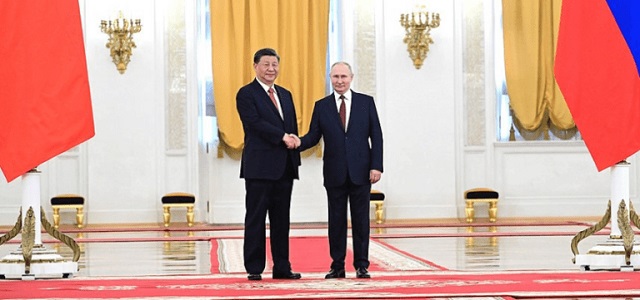
 Agriculture18 hours ago
Agriculture18 hours agoThe China – Russia “Grain Entente” – what is at stake for Canada and its allies?
-
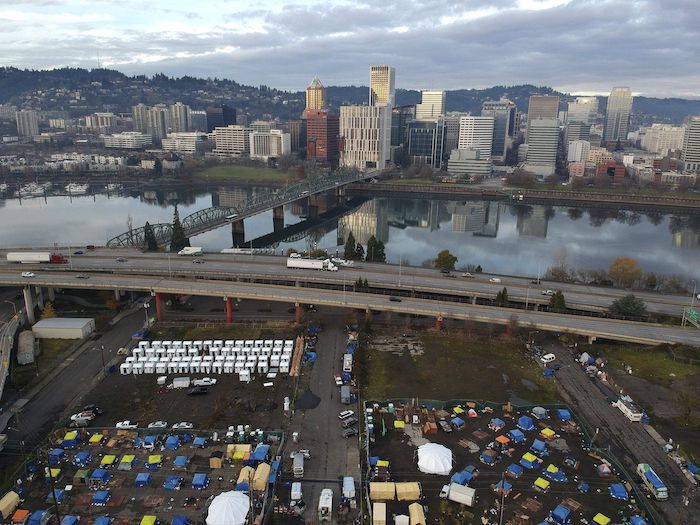
 Crime2 days ago
Crime2 days agoSoros-Backed DA Poised To Lose To Challenger In Ultra-Liberal County
-
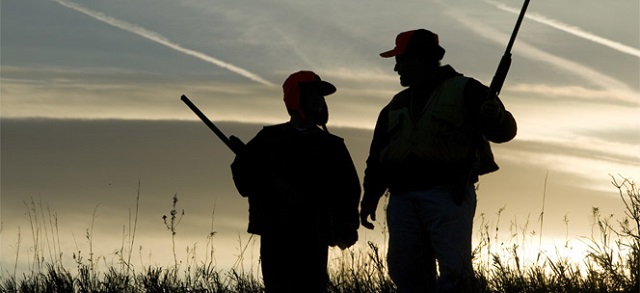
 National2 days ago
National2 days agoParks Canada deer hunt project to cost taxpayers $12 million
-

 International2 days ago
International2 days agoNew bill would have exposed alleged conflicts in Biden, Trump presidencies
-

 Automotive1 day ago
Automotive1 day agoEV transition stalls despite government mandates and billion-dollar handouts
-
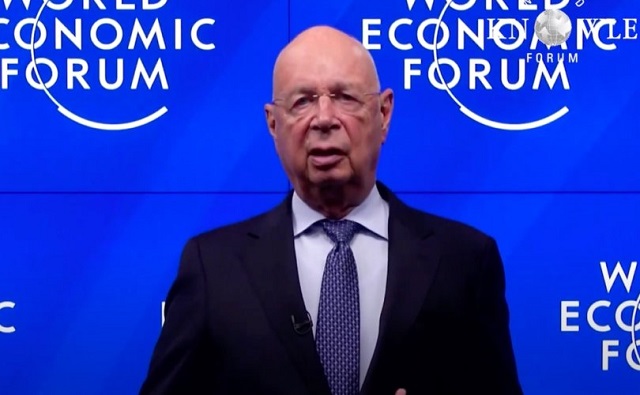
 Great Reset17 hours ago
Great Reset17 hours agoDr. Robert Malone reacts to Klaus Schwab’s resignation: ‘Resistance is not futile’
-

 COVID-192 days ago
COVID-192 days agoBiden’s Navy secretary says he has ‘no regrets’ about firing 5,000+ unvaxxed sailors, Marines
-

 COVID-192 days ago
COVID-192 days agoSaskatchewan appeals court upholds COVID-era gov’t restrictions on outdoor gatherings






